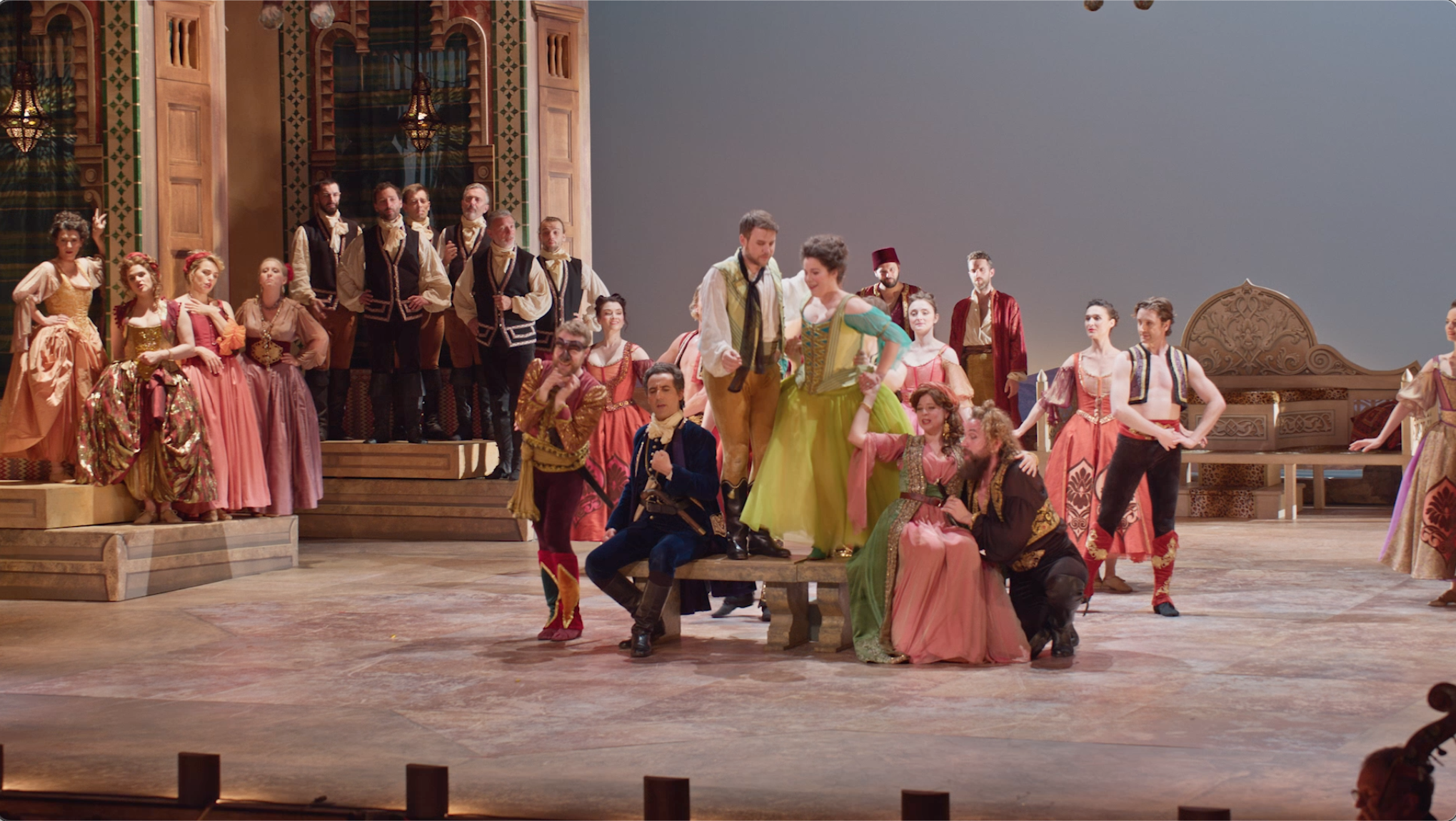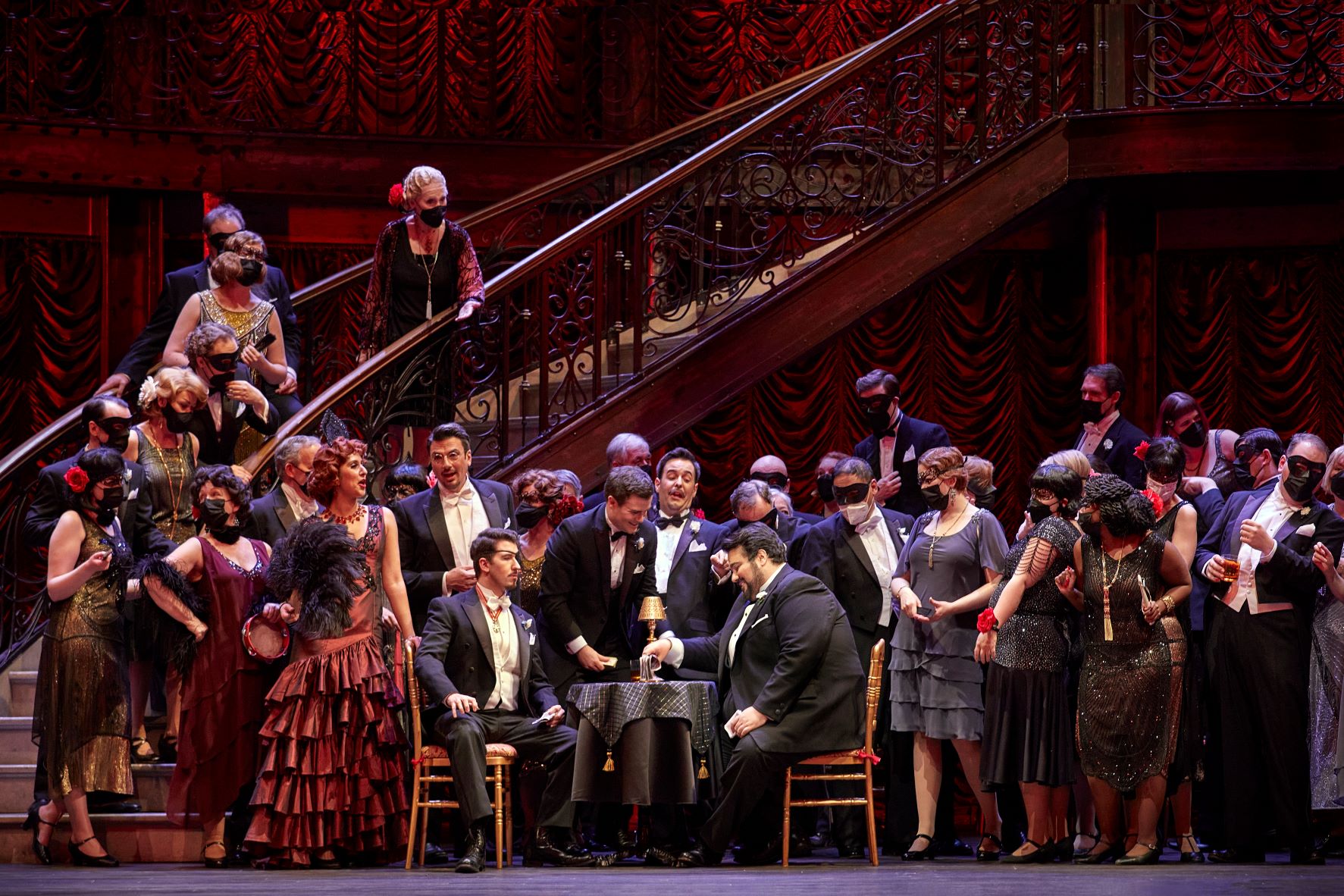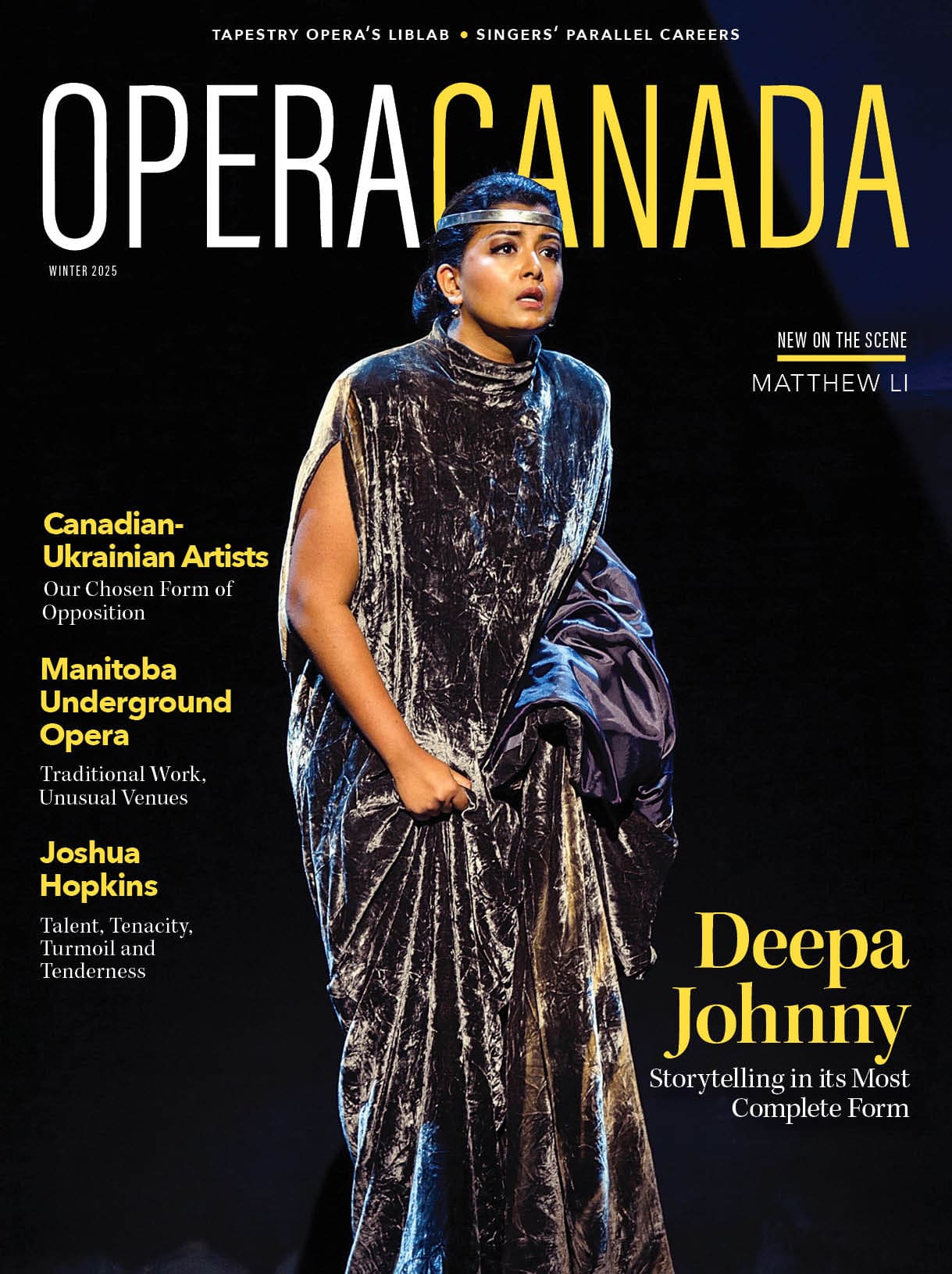La caravane du Caire is an opéra-ballet in three acts by André Grétry that premièred in 1783. It’s one of Grétry’s lighter and shorter works and was very popular in its day. It was staged by the Opéra Royal at Versailles in 2023 and has now been released on video.
This production has plenty of Canadian contenrt. It’s directed by Marshall Pynkoski with choreography by Jeanette Lajeunnesse Zingg, and it features Hélène Guilmette as Zélime and Robert Gleadow as Osman, the Pasha of Egypt. Unsurprisingly, the overall effect is not unlike an Opera Atelier production, but there are noticeable differences.
The plot is fairly straightforward. Zélime and Saint-Phar are a French couple who have been enslaved and are in the hands of the slave trader Husca. On their way to Cairo, the party is attacked by bandits. Saint-Phar’s bravery in fighting them earns him his freedom, but he cannot persuade Husca to keep him and free Zélime instead.
Meanwhile in Cairo, Osman is bored with life and his wife Almaïde. The eunuch Tamorin tries to cheer him up by informing him that Husca has pretty European women for sale, so it’s off to the bazaar for the sales pitch. Three slave girls perform in a manner that is stereotypical of their nation – the French girl is musical and flirty, the Italian girl is fiery with a touch of dominatrix and the flashiest aria in the opera, the German girl is shy and frumpy and sings a folk song. Osman gets quite excited by this show, but then he sees Zélime and completely falls for her. He buys her for a huge price despite Saint-Phar’s pleading.
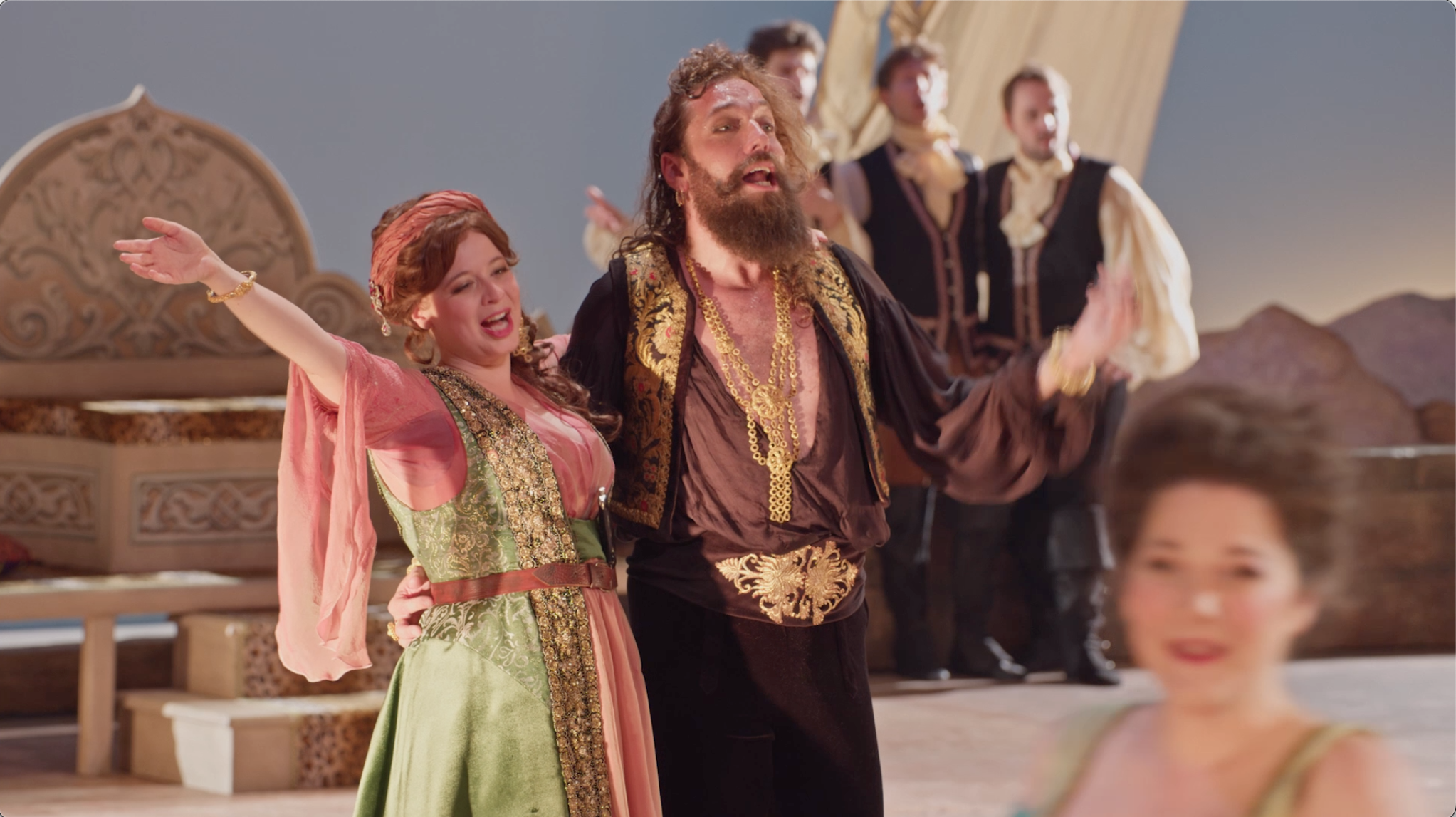
Marie Perbost and Robert Gleadow as Almaïde and Osman in Le caravane du Caire.
The final act opens with the French admiral Florestan about to leave the Pasha’s service after distinguishing himself. (In this opera, all Frenchmen are recklessly brave and their women beautiful and willing.) Meanwhile, Almaïde is lamenting her husband’s infatuation with Zélime. Fortunately for her, Saint-Phar shows up to abduct Zélime, but he is captured. Osman and Florestan sing a duet about which of them should execute him. Then comes the big reveal: Saint-Phar is Florestan’s missing son. Almaïde, Zélime, Saint-Phar and Florestan sing a rather fine “mercy” quartet, and the Pasha relents, freeing both the lovers. Cue the triumphal ballet.
And speaking of ballet, there’s a lot of it and it’s really good. The choreography is classic JLZ, but it’s extremely well danced. The house ballet company is very athletic and skilled – it’s a bit like Opera Atelier on steroids. Pointe shoes are used, and the ladies’ costumes are rather more diaphanous than at OA. The direction, too, is recognizably Pynkowski. There are elements of commedia, especially a Harlequin-like Tamorin complete with slapstick, but it’s not overdone. The deep but narrow stage tends to force people into groups at the front, but Pynkoski varies things up by using an apron in front of and at the side of the pit.
The singing is excellent, though I don’t think this is the most demanding of scores. It’s tuneful and pleasant but rarely flashy. Guilmette and Marie Perbost, who sings Almaïde, both have quite full, pleasant voices and both act well. The two haute-contres – Pierre Derhet as Saint-Phar and Enguerrand de Hys as Tamorin – have proper French style. Gleadow’s Osman is semi-buffo. He clowns a lot and sometimes is close to over the top, but it’s backed by solid singing which is definitely at the bass end of bass-baritone. Jean-Gabriel Saint Martin plays both Husca (with false nose) and Florestan (without) and manages to project a different dramatic and vocal personality for each with some particularly fine singing in the latter role. It’s backed up by competent singing from the minor characters and the chorus and a suitably 18th-century sound from the pit from Le Concert Spirituel with Hervé Niquet conducting.
The package includes both DVD and Blu-ray discs. The latter looks good, though some scenes are very dark. There’s no surround sound option, but the 24bit/48kHz stereo sounds excellent. There’s also a book (booklet would be churlish) with far more information than is usual for video discs.
La caravane du Caire is a well-crafted, tuneful piece and this production – especially the excellent ballet – does it justice.
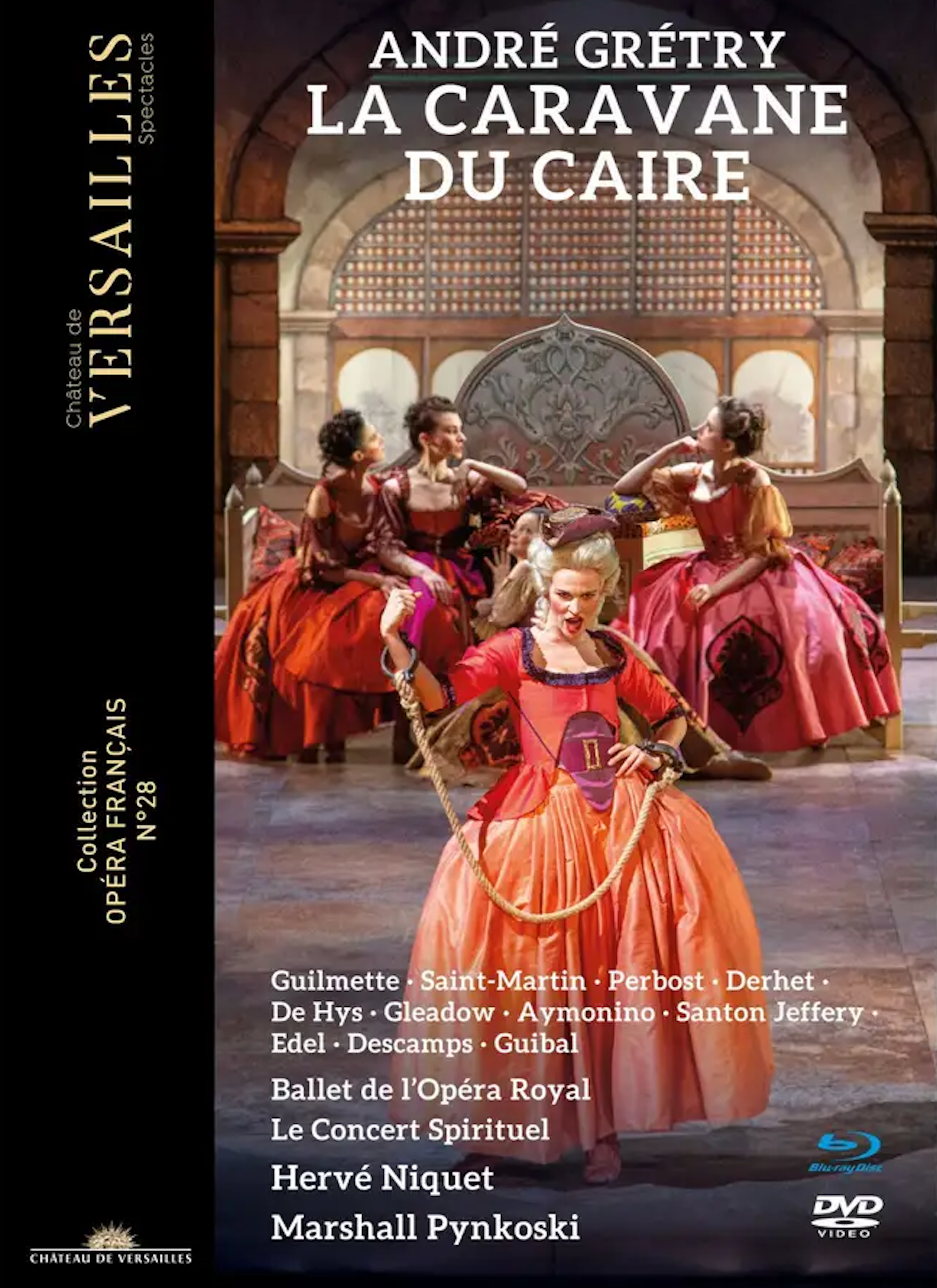
Opera Canada depends on the generous contributions of its supporters to bring readers outstanding, in-depth coverage of opera in Canada and beyond. Please consider subscribing or donating today.


